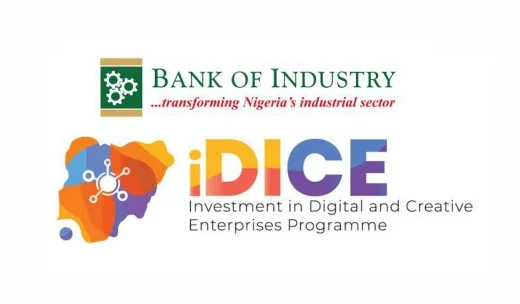Ways AI is Changing the Hiring Process
The first stage of recruitment—sifting through resumes—remains a persistent challenge for hiring managers. Traditionally, human resources personnel or recruitment specialists had to manually evaluate mounds of documents, a process susceptible to human fatigue and oversight. Today, machine learning algorithms scan and categorize resumes in seconds, identifying those that match position requirements with impressive accuracy. Accounting roles, for instance, might demand experience with specific software tools or knowledge of auditing protocols. Rather than dedicating hours to locate these details, AI quickly highlights resumes that contain the relevant credentials.
For Banking and Finance positions, automation can single out individuals familiar with regulatory compliance. In Construction or Real Estate, the technology scans for safety certifications, project portfolios, or specialized knowledge in contracts. Similarly, a firm in Insurance or Mortgage can look for compliance expertise or risk assessment backgrounds. By deploying these AI-driven systems, organizations enjoy a heightened level of precision and efficiency, ensuring they don’t inadvertently dismiss high-caliber candidates who might be overlooked in a messy paper trail. However, careful calibration is vital. If the filters are not balanced, they could inadvertently introduce biases, which underscores the importance of combining automated tools with ethical guidelines and ongoing human oversight.
Once resumes are collected, applicants are often left in a limbo of uncertainty, waiting for updates or clarity about the role. Organizations addressing this gap now employ chatbots that promptly respond to candidate inquiries around the clock. These virtual helpers can confirm application receipt, explain next steps, and even schedule interviews. In high-pressure fields like Healthcare, where many positions must be filled swiftly, this immediate engagement proves especially valuable. Job seekers can inquire about prerequisites for medical roles or find out about potential shift schedules without having to speak to a recruiter directly.
Automated support is equally helpful in fields such as Information Technology, Human Resources, or even Marketing, where candidates may have wide-ranging questions about workplace culture, growth opportunities, or technology adoption. Chatbots respond within seconds, freeing up human recruiters to dedicate their energy to nurturing meaningful relationships with top-tier candidates. It’s an approach that merges speed with personalization—ensuring neither aspect is lost. Yet, it is important to remember that chatbots serve best as preliminary touchpoints. There is no substitute for real, in-depth discussions that let recruiters gauge an individual’s communication style, engage in negotiation, or address nuanced questions that AI may not be equipped to handle.
Many industries—such as Marketing, Management, and Legal Support—depend heavily on soft skills, including strong listening abilities, emotional intelligence, and adaptability to fast-moving corporate landscapes. AI-driven assessment tools now interpret subtle cues in communication, from voice tone during video interviews to the structure and language of written responses. For instance, a job applicant might be asked open-ended behavioral questions, and machine-learning programs can evaluate their word choice to predict problem-solving skills or extroversion levels. This approach is especially useful in Marketing Research or Creative roles, where idea generation and collaborative thinking are paramount.
Companies in Apparel and Textile or Publishing might also use AI to explore whether a candidate’s personal values align with a brand’s identity. In an era where corporate culture can influence employee performance, ensuring potential hires mesh well with existing teams is paramount. Nonetheless, these technology-driven evaluations should not be viewed as infallible. People are multidimensional, and overreliance on automated scoring may reduce a nuanced process to mere data points. When wielded judiciously, AI insights complement rather than supplant the valuable instincts of experienced hiring professionals.
The cost-effectiveness and scalability of AI-based recruitment solutions have significantly lowered the barrier to entry for smaller firms. In the past, large companies dominated the market with extensive human resources teams capable of meticulously screening and shortlisting candidates. Now, small- and medium-sized organizations can adopt AI-driven platforms that streamline operations at a fraction of the traditional cost. No matter if it’s a local accounting firm, a boutique construction business, or a fledgling tech startup, these tools level the talent-hunting playing field. Automated resume reviews, targeted outreach, and real-time candidate support are no longer exclusive benefits for organizations with enormous budgets.
Firms in Legal Support or Real Estate, which often tackle surges in client demand, can now quickly scale recruitment efforts up or down. Mortgage providers may leverage AI to process applications and verify financial details faster, letting them focus on cultivating client relationships. Meanwhile, in Creative and Digital Marketing, small boutique agencies can swiftly identify top designers or social media experts by scanning portfolios without spending an entire week on manual checks. It provides a significant advantage, but also raises the responsibility to implement transparent and fair hiring standards that ensure a diverse pipeline of qualified individuals.
One of the most noteworthy traits of AI is its adaptability across different sectors. In Healthcare, machine learning can rank nursing applicants based on specialized certifications and availability. In Banking, algorithms focus on candidates’ risk assessment backgrounds and familiarity with complex regulations. A Mortgage company might look for predictive indicators of sales success, analyzing an individual’s interpersonal approach or track record in generating leads. In Real Estate, AI can pinpoint professionals with impressive negotiation skills by examining historical transaction data.
This industry customization extends into areas like HR, where AI sorts through compliance knowledge or conflict resolution abilities among potential managers. In Marketing, analytics can glean how well someone’s portfolio resonates with specific audience demographics. Publishing entities can highlight editorial prowess by tracking previous writing samples and analyzing reading metrics. In fields that rely on a balance of technical skills and creativity—like Finance and Management—AI can combine various data streams to compile a comprehensive candidate profile. When deployed thoughtfully, these platforms grant businesses an uncanny precision in identifying strong matches, underscoring that AI is versatile enough to cater to an array of organizational demands.
Although AI can achieve remarkable feats in detecting promising talents, it remains a tool, not a substitute for genuine human judgment. Hiring entails intricate considerations—like how well someone adapts to a team or how effectively they resolve unexpected challenges. Recruiters offer empathy, intuition, and contextual awareness that datasets cannot fully replicate. Balancing automated elements with humane touchpoints preserves the spirit of connection between employers and prospective hires.
Human expertise is pivotal when clarifying a role’s unique demands or addressing potential misunderstandings that might arise during AI-driven screenings. For instance, an algorithm might mistakenly downplay an applicant’s relevant experience if they use less common wording in their resume. Additionally, in certain fields like Healthcare or Construction, where safety and compliance are top priorities, capturing intangible qualities—like accountability under pressure—often benefits from direct personal engagement. Ultimately, a synergistic approach capitalizes on technology’s strengths while highlighting recruiters’ expertise in judging intangible elements that can make or break a hire.
Conversations around AI-driven recruitment often allude to what’s next, as innovations in natural language processing and deep learning promise even more advanced evaluation methods. To stay competitive, businesses across all industries must think beyond immediate vacancy filling. Keeping robust data sets on candidate interactions, job performance, and market trends can guide workforce planning and reveal emerging skill gaps. By tapping into these insights, leadership teams can forecast shifting demands—whether it’s a surge in telehealth providers, an uptick in data analysts for Marketing, or the rising importance of green construction specialists.
For applicants, the journey becomes more transparent, as they can more easily track their status and gain insights into the organizational culture through AI-fueled platforms. Experienced candidates appreciate the clarity and speed, whereas less-experienced individuals can glean specific competencies they need to strengthen. In many respects, this shift toward data-rich transparency benefits everyone involved and fosters a more informed marketplace of labor. Over time, widespread AI adoption will redefine not just how candidates are recruited but also how they are trained, retained, and promoted.
From advanced resume filtering to customized assessment platforms, artificial intelligence continues to transform recruitment at a remarkable pace, touching everything from the Healthcare sector to Creative and Digital Marketing agencies. It democratizes opportunity for small firms, improves candidate experiences globally, and introduces new levels of depth in analyzing potential hires. While technology offers powerful advantages—speed, consistency, and large-scale data processing—it is most effective when paired with empathy and a nuanced understanding of the human element. Winston Resources has seen how organizations that blend AI with thoughtful human engagement outperform their competitors in attracting high-quality professionals. By coordinating technological prowess with authentic connections, recruitment efforts can stand the test of time, paving the way for sustainable growth and satisfied new hires.









